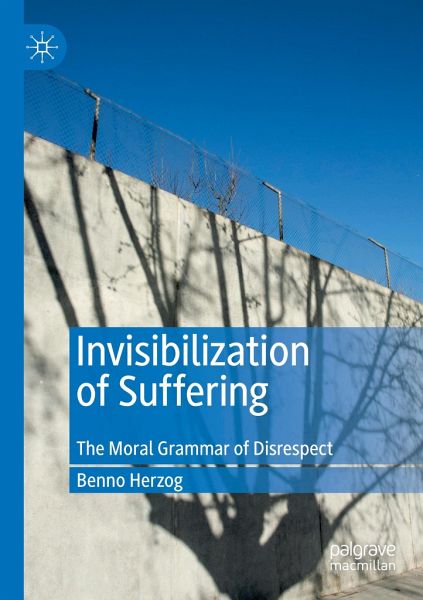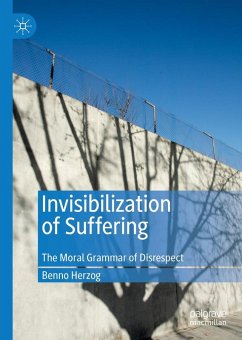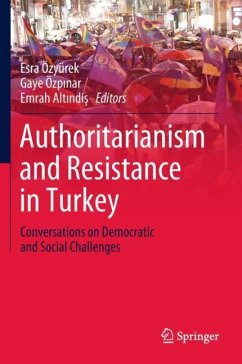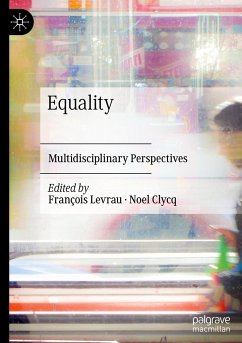
Invisibilization of Suffering
The Moral Grammar of Disrespect
Versandkostenfrei!
Versandfertig in 6-10 Tagen
38,99 €
inkl. MwSt.
Weitere Ausgaben:

PAYBACK Punkte
19 °P sammeln!
This book offers a comprehensive theory of invisibility as a critical sociological concept, addressing the relationship between social suffering and invisibilization.Herzog draws on social theory and a variety of empirical examples to analyze social grammar and unveil various mechanisms of social suffering. Presenting an original theory of silencing and suffering, this book outlines a substantive theory and methodology of invisibilization as an instrument of authority. This systemic analysis of visibility as both a liberating and dominating mechanism will be a major contribution to the field o...
This book offers a comprehensive theory of invisibility as a critical sociological concept, addressing the relationship between social suffering and invisibilization.
Herzog draws on social theory and a variety of empirical examples to analyze social grammar and unveil various mechanisms of social suffering. Presenting an original theory of silencing and suffering, this book outlines a substantive theory and methodology of invisibilization as an instrument of authority. This systemic analysis of visibility as both a liberating and dominating mechanism will be a major contribution to the field of critical theory, offering an original framework to help improve the situation of excluded groups and individuals.
Invisibilization of Suffering will be an invaluable resource for students and scholars across sociology, social philosophy, social work, political sciences, criminology, linguistics and education, with a focus on justice theory, marginalization, discrimination and exclusion.
Herzog draws on social theory and a variety of empirical examples to analyze social grammar and unveil various mechanisms of social suffering. Presenting an original theory of silencing and suffering, this book outlines a substantive theory and methodology of invisibilization as an instrument of authority. This systemic analysis of visibility as both a liberating and dominating mechanism will be a major contribution to the field of critical theory, offering an original framework to help improve the situation of excluded groups and individuals.
Invisibilization of Suffering will be an invaluable resource for students and scholars across sociology, social philosophy, social work, political sciences, criminology, linguistics and education, with a focus on justice theory, marginalization, discrimination and exclusion.














